Ground Reports
In Punjab's Quest For A Canadian Dream, Rising Trend Of 'IELTS-Cleared Brides' Leaving Husbands In Heartbreak And Limbo
Swati Goel Sharma
Sep 26, 2023, 10:30 AM | Updated Oct 09, 2023, 02:24 PM IST
Save & read from anywhere!
Bookmark stories for easy access on any device or the Swarajya app.


Like many other men in Punjab, Bheema Singh wants to migrate to Canada. Three years ago, he felt his Canadian dream inching closer to reality when his newly-wed wife Mandeep Kaur achieved the necessary scores on the IELTS test.
He invested nearly Rs 30 lakh to support a two-year course in Information Technology for her in the Canadian city of Surrey.
The agreement was clear: Mandeep would earn her degree, start working in Canada, and eventually secure a spouse visa for her husband.
Together, they aspired to obtain permanent residency and, ultimately, Canadian citizenship.
However, in a twist that has become increasingly familiar in the region, Mandeep ceased all communication with him at a time her student visa was about to expire. She abruptly became unreachable, blocking Bheema on all platforms.
It happened in September 2022. Bheema has been on a relentless quest to reconnect since, resorting to every available avenue — from soliciting the help of Mandeep's roommates in Surrey to making a Canada-based relative catch a flight to confront her to shaming her family in their native village in Ludhiana district.
All his efforts have gone in vain.

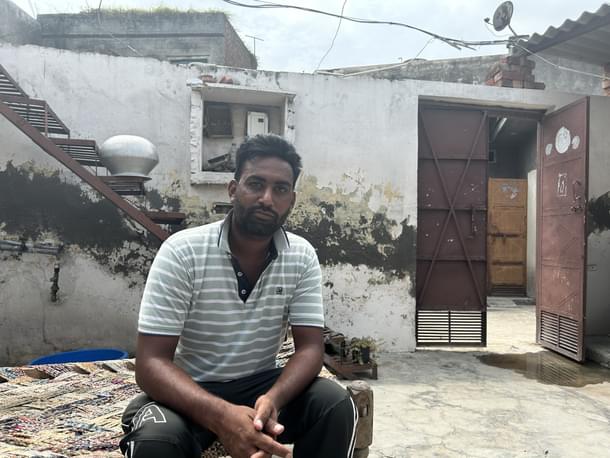
Last month, he resorted to legal measures, filing a police case against Mandeep and her father, alleging fraud, betrayal, and conspiracy.
Bheema's predicament, however, is not an isolated incident.
Inspector general of police (IG, Ludhiana range) Kaustubh Sharma last month confirmed that there was a definitive trend in the state where families marry off their sons, who have not cleared the requisite IELTS test or lack the qualifications, to women who have.
The financial obligations of sending the bride abroad are borne by the groom's family, on the condition that they would facilitate their sons’ migration later.
Such marriages, dubbed 'contractual' by the authorities, are increasingly transparent, with matrimony advertisements straightforwardly seeking brides and grooms based on their IELTS scores and potential for migration.
For instance, two such ads read: “Need IELTS clear girl. For Canada. Girl should be graduate. All expenses from boy’s side. Only contract marriage” and “22 year girl, IELTS clear, UK layi file laggi hoyi hai (File for immigration to UK submitted). Boy required jo kharcha kar dave (groom required who can fund it).”
Several such arrangements are witnessing a fallout, with the groom’s family accusing the bride’s family of not honouring their end of the deal. The officer said that, in August alone, they had recorded 12 similar complaints in Ludhiana.
Bheema ardently denies any transactional nature to his marriage, which was solemnised as per Sikh rituals in July 2018. "I married her before she had even taken the IELTS test," he contends. "Main pakka vyaah karaya si. Meri koi contract marriage nai si (I did a valid marriage with her. Mine was not a contract marriage)."
His complaint, lodged at the Khanna City-2 police station, alleges that Mandeep and her father accepted Rs 30 lakh to send her to Canada but failed to follow through with the agreed plan, and were not returning the money.
The police booked the two under IPC Sections 406 (criminal breach of trust), 420 (cheating and dishonestly inducing delivery of property) and 120 B (criminal conspiracy). The case is yet to go to trial.
Hailing from Daudpur village in Ludhiana, Bheema belongs to the ‘Ramdasia’ community — Sikhs from the ‘chamar’ caste. His mother Sarjeet Kaur says they invested roughly Rs 45 lakh on Mandeep.
This sum, she says, encompasses expenses from the couple’s pre-wedding photoshoot, the wedding ceremony, the subsequent reception, the fees for her IELTS preparation and test, a “beauty parlour course” she did on the side, and her Canadian study visa.
Mandeep cleared the test in her third attempt, she says. "Our expectation was simple: for her to study diligently and pass the test. I never burdened her with domestic chores or cooking responsibilities.”
At the time of her marriage, Mandeep had completed her school and secured a one-year diploma course in computers from a local private institute.
Bheema’s house, albeit modest, had an air-conditioned room exclusively for Mandeep so she could study. He gives a tour of the room — it has a bed, a chair and a table, now piled up with clothes. “The room used to be tidy. We gave her the best study atmosphere we could,” he says.
He readily admits that academia was never his forte. He dropped out of school after Class 7. Nevertheless, displaying entrepreneurial acumen, he launched a DJ business, which fetches good money during the wedding season. Additionally, he owns a food truck catering to college students, which turns a decent profit.

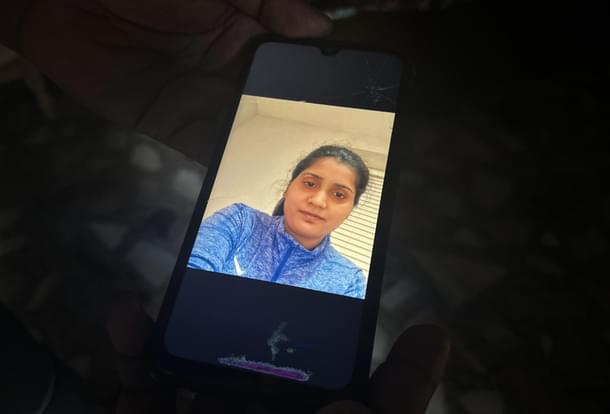
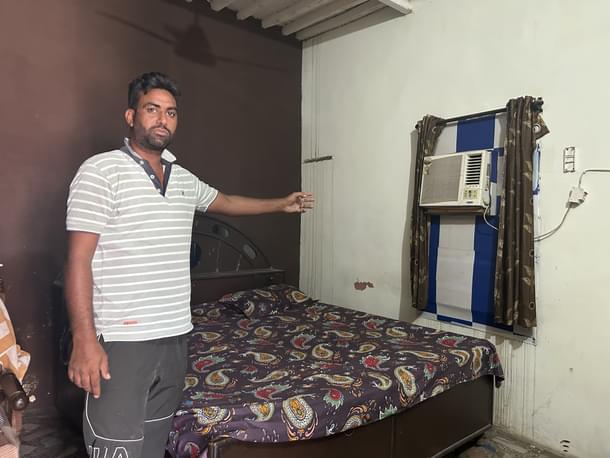
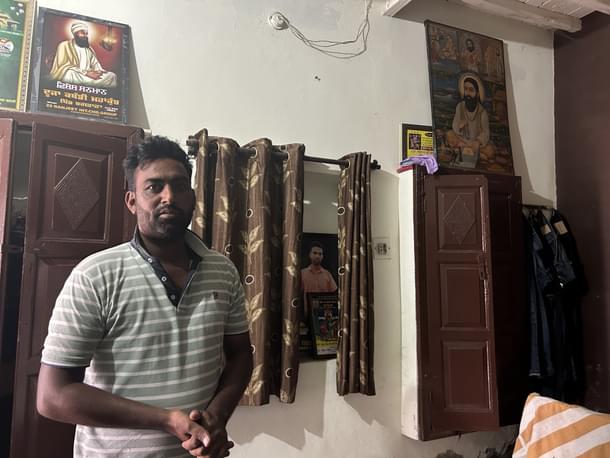
Bheema's immediate family includes three siblings: an elder brother settled in Canada, and two younger siblings still pursuing their education.
Intriguingly, Bheema's elder brother, Dara Singh, pioneered the family's Canadian journey. Dara married a woman who cleared the IELTS and subsequently secured his passage to Canada on a spouse visa.
According to Bheema, Dara has since inaugurated a Punjabi eatery in the Canadian capital city of Ottawa.
Reflecting on her past, Sarjeet recalls the hardships of her earlier years, and credits her elder son's move to Canada with the family's improved fortunes.
She says with evident pride, "Throughout my younger days, I was well-acquainted with poverty. But the fortune shifted when our sons stepped up.”
“First it was Dara who sent remittances. He enabled us to buy furniture for the first time. Then Bheema revealed his own set of skills.”
Bheema's father, Mewa Singh, tills the land on their family-owned farm. He was not at home when this correspondent visited.
When asked about the desired outcome of their legal action, Bheema said, "Our hope is either for Mandeep and his father to face jail, so that they don't ruin anyone else's future, or for me to get permanent residency in Canada through her.”
When questioned about the possibility of a monetary settlement, Bheema firmly denied it. “We aren’t fighting the case for money. Earning back all the money we have lost is well within our capabilities. We are able-bodied and very hard-working,” he says.
When asked how he knows Mandeep is hale and hearty in Canada and is not in trouble herself, Bheema said that he has often spotted Mandeep in Instagram reels posted by her roommates. Once, she unblocked him for a few seconds on Whatsapp to send him a document, which showed she had failed in her course. "I showed the document to someone educated in our village. He said it was fabricated," he said.
Bheema requested this correspondent to not photograph his house, saying it was in poor condition. “Our house is the most modest in the entire village. Not that we don’t have the money to renovate it, but we want all of us to settle our businesses and mode of earning first," he said.
Half of Daudpur's residents, according to Bheema, have migrated to Canada.
The village is home to roughly 700 families — predominantly Sikhs from scheduled castes such as Ramdasia and Valmiki, with a smaller subset of 'zimmidar' (zamindar or Jatt) Sikhs and Hindu Brahmins.
Just a short distance from his residence, Bheema points to a row of about ten houses, noting they are vacant due to their occupants having relocated to Canada.
Prakash Kaur, a neighbouring woman and a fellow member of Bheema’s caste, doesn’t mince words when asked about Mandeep's alleged deceit, referring to her with the derogatory term ‘haramzadi’.
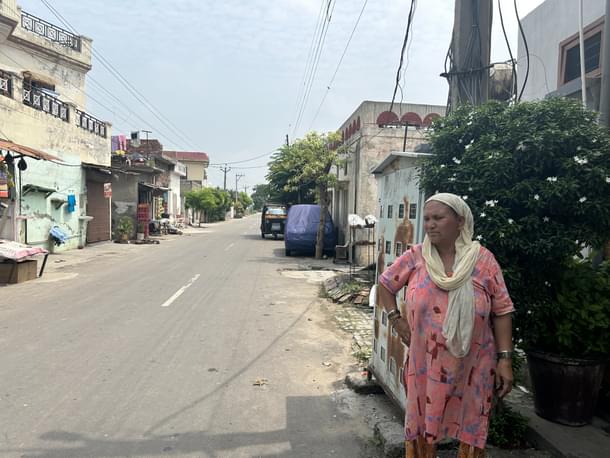

She remarks that while many from Daudpur and its surrounding villages have migrated to Canada over the years, they have never encountered a situation like Bheema’s.
In Bheema’s own ordeal, efforts were made to put community pressure on the woman’s family, which is in Himayupura, a town situated about 40 kilometers away.
Bheema recounts seeking the support of local leaders from neighboring villages. In March, he, along with a group of about 60 individuals, including village heads, visited Himayupura. There, they engaged with the sarpanch and influential community members, voicing their grievances against Harbans Singh and his daughter.
However, the outreach yielded no results. “Harbans distanced himself from the situation, saying his daughter was beyond his control.”
Bheema also made his brother, Dara Singh, who resides in Ottawa, travel across Canada to Surrey with hopes of talking to Mandeep directly.
That, too, went in vain. “When he reached there, Mandeep’s roommates conspired with her and did not let him meet her, saying she was away.”
When this correspondent visited Himayupura, locals expressed their disapproval of their fellow resident, Harbans.
'Sarpanch' Kuldeep Singh said the “community’s sentiment was strongly against Harbans and his daughter.” Although the spouse of the village leader Chiranjeet Kaur, Kuldeep effectively acts as the head of the village.
When asked if that had changed anything for Harbans and his daughter, Kuldeep said the villagers had stopped greeting him in the streets.
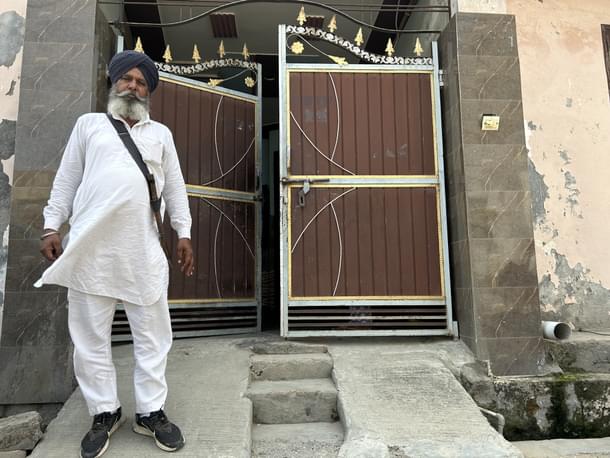
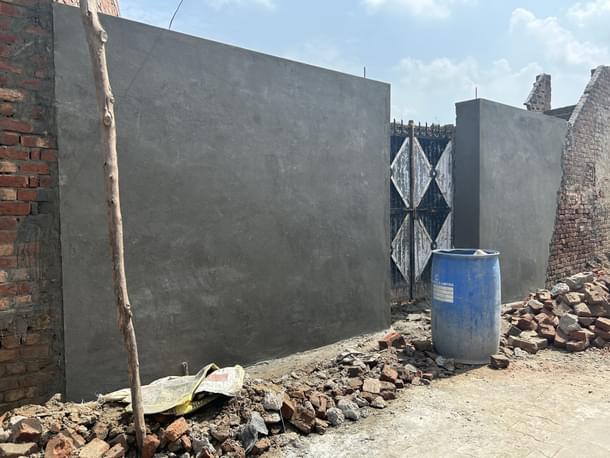
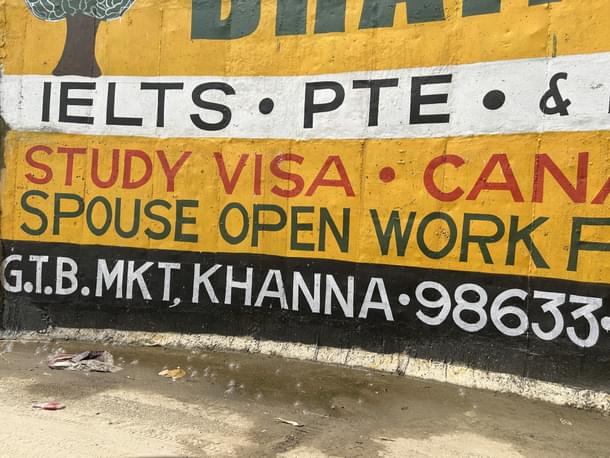
Harbans’s house was locked. Neighbours were candid in their disapproval, expressing suspicion that Harbans had orchestrated the marriage with malicious intent.
Harbans has five children — all daughters. A neighbour, asking to be quoted anonymously, said he wanted Harbans to be punished as what he had done was fast becoming a pattern. He revealed that in a panchayat some months ago, residents had collectively urged Kuldeep to side with the groom’s family in the legal case.
Notably, senior officers have expressed complexities faced by the police in such situations, noting that they cannot mandate a woman to reside with a man against her will, and what complicates matters further is the verbal nature of these marital agreements, devoid of any written contractual evidence.
Kuldeep is from the same caste as Harbans. Of the nearly 2,200 households in the village, 700 are Ramdasias, while Jatts account for a similar number. Kuldeep disclosed that around 400 families from this village have migrated to Canada, with his own children aspiring for the same.
Asked about the allure of Canada, Kuldeep said Punjab provides little opportunities to work and earn, unlike Canada. Migrating to a big city such as Chandigarh comes with no perks, he said.
He said while Punjab’s Malwa region, of which Ludhiana is a part, remains a pocket of some economic activity due to its industrial character, Punjab's Doaba region is dominated by the exodus sentiment, especially from districts like Hoshiarpur and Jalandhar.
He noted that despite the abundant agricultural trade, Punjab's longstanding battles with unemployment and drug abuse are making its youth fly out.
One only needs a cursory glance at the billboards in the area, endorsing English-language training and visa consultation services, to learn of the desperation to migrate. Sadly, cases of young men forcing their parents to sell land to fund their migration abroad are fairly common in the state.
Kuldeep confesses that the current trend is largely attributed to herd mentality. “Remaining in Punjab is now perceived as a downgrade in social standing,” he observes.
As per an analysis, around 3.4 lakh Punjab citizens are currently studying in Canada, with each student paying around 17,000 Canadian dollars in annual fees, in addition to depositing 10,200 Canadian dollars as Guaranteed Investment Certificate (GIC) funds.
The agency that carried out the analysis says that while till 2008, only 38,000 Punjabis were applying for Canada each year, the numbers are now booming, with the figure last year standing at 1.36 lakh. Overall, students from Punjab spend about Rs 68,000 crore in Canada annually.
Notably, Canada has not stopped granting visa to Indian citizens despite the ongoing stand-off between the two countries over the murder of Khalistani militant Hardeep Singh Nijjar and India announcing a total stop on issuing visas to Canadian citizens. For this reason, Bheema believes his situation is not affected by the current tensions.
Readers may note that the trend of brides abandoning husbands after reaching abroad seems to be a recent one, but Punjab police have for long struggled to tackle cases of wife abandonment by NRI husbands.
A staggering 30,000 such cases were under probe of the state government five years ago when the Punjab State Women’s Commission urged for enacting deterrent laws.
Such cases typically are of this pattern: Parents marry their daughter to an NRI on a visit to Punjab, bearing the entire cost of a lavish ceremony. The husband flies off, while the wife waits for visa while living with her in-laws in Punjab. When the wait becomes too long, her family realises they have been cheated.
The Punjab police have a dedicated NRI division to address such marital and financial rifts. With recent events, their fresh challenge is to persuade brides settled abroad to sponsor their spouses.
Meanwhile, Bheema has embarked on an Instagram campaign for justice, where he chronicles the events of his marriage, including the happy moments, in the hope that the overseas Punjabi diaspora would intervene.
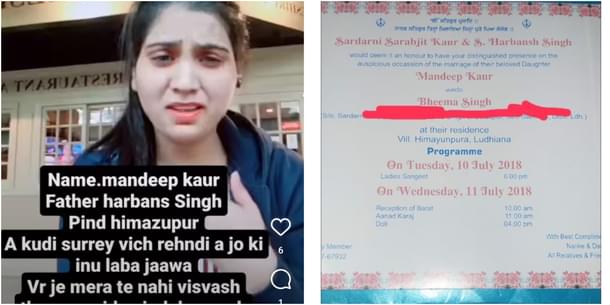
His emotional scars run deep. He ponders whether his darker skin tone was a factor in his abandonment. But he soon reasons and puts the blame on Mandeep’s father.
“If it was about my ‘kala rang’, she could have said no at any stage of the marriage. Like, during the pre-wedding shoot itself, which I arranged only because she wanted to. I feel it was her father’s plan all along to dupe us."
Swati Goel Sharma is a senior editor at Swarajya. She tweets at @swati_gs.





